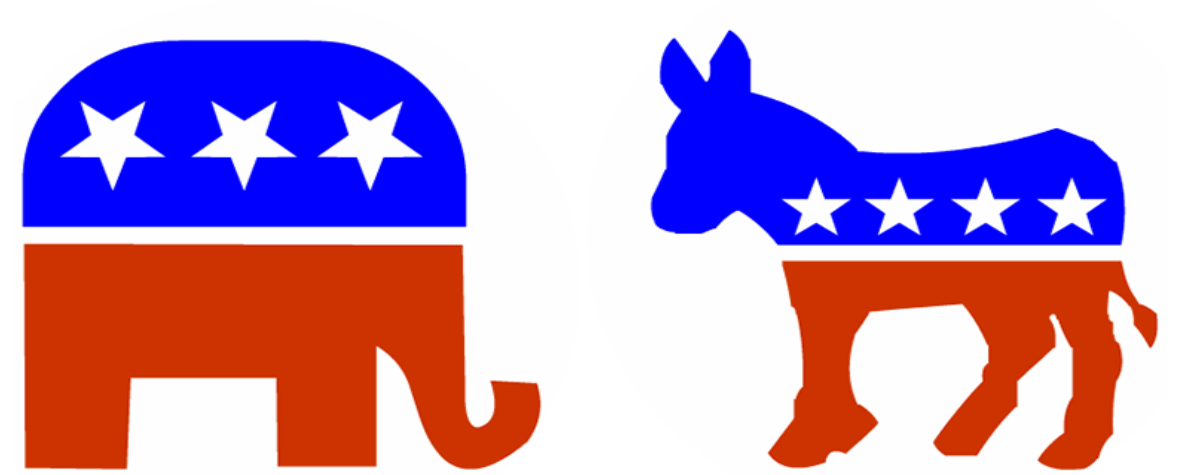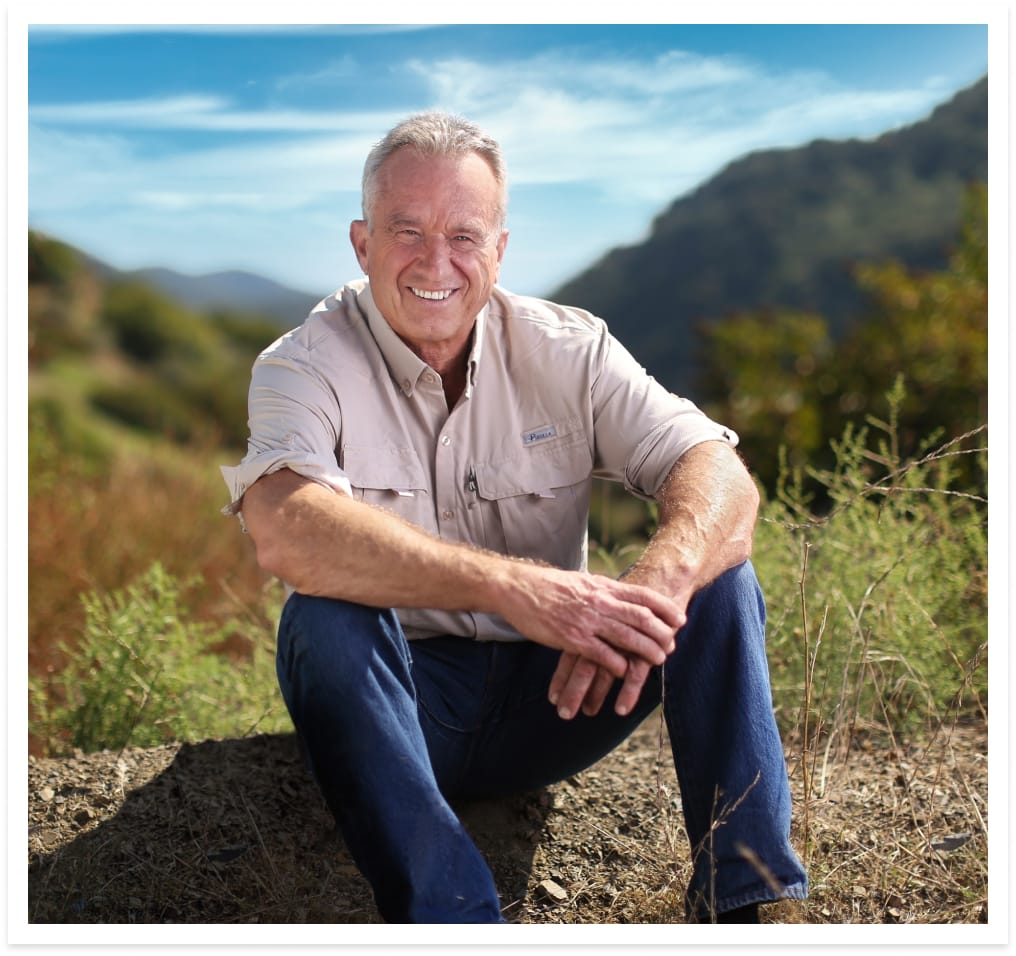Presidential candidates on the issues

This Nov. 5, four candidates for president will be on South Dakota ballots. The Augustana Mirror would like to highlight their policy positions and plans for the United States.

Republican - Donald J. Trump
Former President Donald Trump is running as the Republican nominee in the 2024 U.S. presidential election, alongside his running mate JD Vance, a Republican senator from Ohio.
In Trump’s first term, he began construction on a U.S.-Mexico border wall and enacted sweeping anti-immigration legislation. If elected, Trump says he would restore and expand these policies and deport 15 to 20 million undocumented immigrants with the assistance of the U.S. military.
Trump also promised to reinstate his travel ban that barred people from several majority-Muslim countries from entering the U.S. and expand it to include Gazans.
Trump sees the United States’ relationship with China as an important part of his economic plan. In his first term, Trump started a trade war with China to protect domestic industries with a series of escalating tariffs. Trump plans to go further if elected with 60% tariffs on Chinese imports and 10-20% tariffs on all foreign imports.
In 2017, Trump cut corporate taxes from 35% to 21%, and Trump plans to cut these further to 15% for companies with U.S.-made products.
Trump has pledged not to cut Medicare or social security and said he would eliminate taxes on social security, tips and overtime.
In international affairs, Trump claims he will be able to broker a deal between Russia and Ukraine to end the war before his inauguration and was reluctant to continue aiding Ukraine. As president, Trump supported Israel and continues to do so.
Trump has promised to again back out of the Paris Agreement, an international pledge to mitigate climate change. Trump has positioned himself as a champion of fossil fuels, supporting more gas and oil drilling and promising to rescind environmental regulations to bring down energy costs.
During his presidency, Trump was tough on crime while also passing criminal justice reform through the First Step Act, which aimed to reduce recidivism and freed more than 3,000 federal inmates within the first year of enactment.
Trump criticized calls to defund the police but has pushed for Congress to defund the Department of Justice and the FBI that he claims “Democrats have weaponized” to interfere with elections. Trump says he would continue to send federal agents to respond to increased violence in cities and would now deploy the national guard before they are requested. Trump also plans to strengthen qualified immunity, police protections from civil rights lawsuits.
Trump is a staunch gun rights supporter, promising to oppose any proposed gun restrictions and “roll back every Biden attack on the Second Amendment” on his first day in office.
After the Supreme Court overturned Roe v. Wade, Trump has said abortion is a matter best left to the states, though his views on abortion have not always been consistent.
Education is another area Trump says he wants to leave to the states, as he plans to close the Department of Education which he says has been “infiltrated” by “radicals, zealots and Marxists.”
Conversely, Trump supports “universal school choice,” plans to get rid of teacher tenure, make principals elected by parents and cut funding to schools teaching “Critical Race Theory, gender ideology or other inappropriate racial, sexual or political content.”

Democrat - Kamala D. Harris
Vice President Kamala Harris is running as the Democratic nominee in the 2024 U.S. presidential election with Minnesota Gov. Tim Walz as her running mate, following President Joseph Biden’s dropping out of the race on July 21.
Harris has run with her vision of an “Opportunity Economy,” touting tax cuts for middle-class families, financial support of $25,000 for first-time homebuyers and plans to expand startup tax cuts to create new small businesses. Harris also wants to strengthen social security and Medicaid and plans to pay for this by increasing taxes on wealthy Americans and big businesses.
Harris also supports Biden’s massive infrastructure spending aimed at creating new jobs as well as the Inflation Reduction Act which included health insurance subsidies and clean energy tax credits.
Harris also plans to expand college debt relief and financial aid, building on Biden administration programs. Harris has recently made investing in child and senior care a tenet of her campaign.
Harris has condemned Trump’s immigration policies but supported Biden in reinstating many of these policies and adding his own, including an executive order to limit asylum seekers. Harris supported a bipartisan deal to hire thousands more border security workers and allow them to temporarily close the border – a deal that died in Congress after Trump urged Republicans to vote against the bill.
As vice president, Harris was tasked with addressing root causes of immigration and has worked with Partnership for Central America to support El Salvadorian, Honduran and Guatemalan communities. Border encounters from those countries have fallen, but illegal border crossings increased from other countries and reached record highs during the Biden administration, according to the U.S. Customs and Border Protection.
Harris is an ardent supporter of abortion rights and wants to put Roe v. Wade abortion protections into federal law.
On climate and energy, Harris has generally supported the Biden administration policy of subsidies, tax credits and rebates for renewable energy. In 2019, Harris endorsed a fracking ban but now says the U.S. should invest in “diverse sources of energy,” including fracking, to compete with foreign energy.
In international affairs, Harris supports the U.S. continuing to take an active role in aiding Ukraine and Israel.
Harris has been moderately more critical of Israel than Biden, disagreeing with the invasion of Rafah and supporting a two-state solution.
Harris sees maintaining alliances and supporting NATO as important to keeping America safe and creating more American jobs and markets.
Harris plans to strengthen domestic industries by distributing funds from Biden’s infrastructure legislation without cutting ties with China’s economy.
Harris still supports assault weapon bans, universal background checks and red-flag laws that would take guns from people courts deem a threat, but she no longer endorses mandatory buyback programs for assault weapons she pushed for in 2019.
Harris’s position on police funding has also changed, as she now calls for more funding for police. In 2020, Harris said increased police funding would not help communities.
Harris has called for decriminalizing marijuana and supported Biden in his efforts to allow for greater medical use of the drug.

Libertarian - Chase Oliver
Libertarian Chase Oliver, a pro-choice, pro-gun, gay millennial, is the 2024 Libertarian presidential nominee, running with Mike ter Maat, the former White House financial analyst.
Oliver supports massive government cuts and is against U.S. intervention in foreign affairs and government-led climate change solutions. Oliver favors marijuana legalization, free trade, LGBTQ rights and police reform.
Oliver is realistic about his chances of winning but hopes to put more Libertarians in local offices and gain support for ranked-choice voting.

Independent - Robert F. Kennedy Jr.
Robert F. Kennedy Jr. chose to run as an independent candidate in October 2023 but suspended his campaign and endorsed Trump on Aug. 23, 2024.
Due to his late withdrawal, Kennedy will remain on the ballot in a majority of states, including South Dakota, though he has been able to withdraw from key battleground states.



